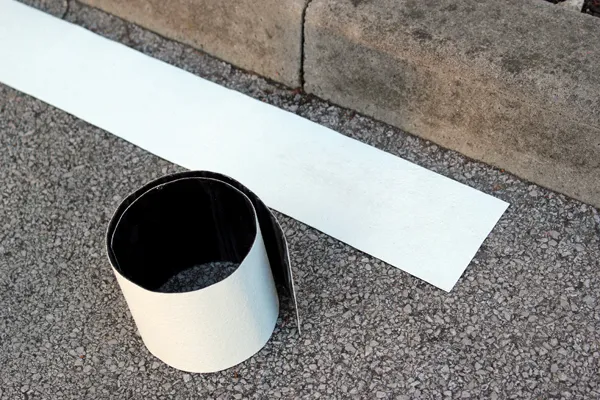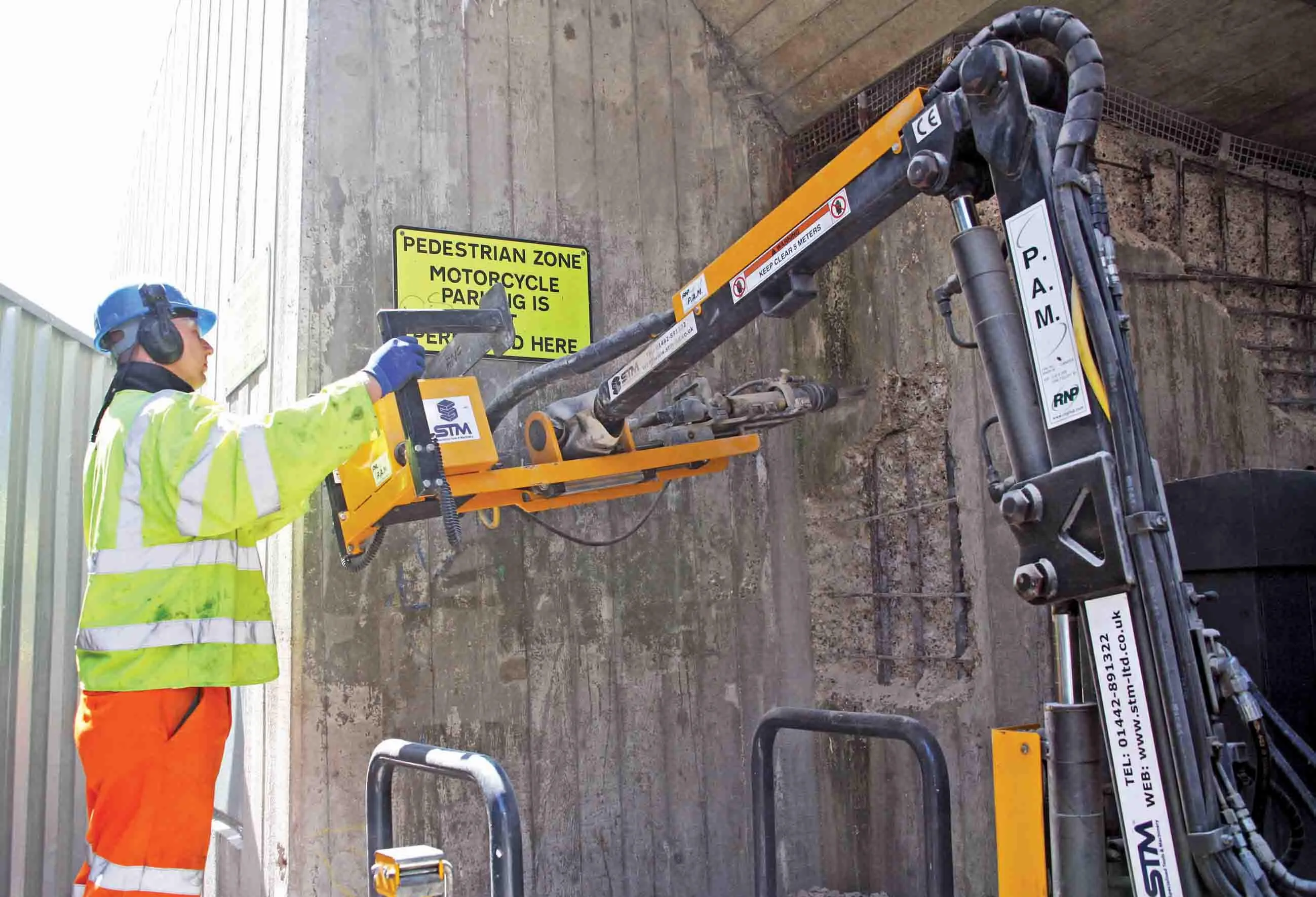A novel technique is now being introduced in the UK that can help cut construction costs, as well as the time needed for road repairs. Connect Plus, the company that finances, operates and upgrades the 400km M25 network on behalf of the UK’s Highways Agency, has pioneered an innovative method for the replacement of life-expired concrete motorway
The introduction of this method is helping reduce the delays experienced by drivers by as much as 80% in the sections of road where it is now being implemented.
April 2, 2014
Read time: 4 mins

A novel technique is now being introduced in the UK that can help cut construction costs, as well as the time needed for road repairs. Connect Plus, the company that finances, operates and upgrades the 400km M25 network on behalf of the UK’s Highways Agency, has pioneered an innovative method for the replacement of life-expired concrete motorway
The introduction of this method is helping reduce the delays experienced by drivers by as much as 80% in the sections of road where it is now being implemented.
The motorway management company, Connect Plus, is a joint venture between1146 Balfour Beatty, 2296 Skanska, 3005 Atkins and 2643 Egis and has made this advance by introducing Rapid Cure concrete. This cuts the time needed for motorway lane and carriageway closures from 1,500 hours/year to just 300. This is the equivalent of a seven-week reduction in construction time.
Connect Plus, working with its supply chain partners, has developed the Rapid Cure technique from best practice in the aviation industry where it is used for repairing airport pavements. The system works by introducing a chemical called a super-plasticiser and a curing accelerator to the concrete mix which makes it set much more quickly. This ensures that the surface still reaches the required compressive strength to support live traffic of 25N/mm2, but in a much shorter time.
Connect Plus has also introduced other techniques to reduce the duration of concrete repair works including pre-cutting the old concrete and preparing it with lifting eyelets for quicker removal and the use of quick drying heated tents. This complete process from start to finish, including the removal of the old concrete bay and the laying out of traffic management, now takes one overnight closure compared to the previous full 48-hour closure.
The reduced need for lane closures also provides a carbon reduction benefit with initial assessments indicating that 500tonnes of carbon emissions have been saved.
Approximately 4% of the UK’s motorway network is made of concrete, with nearly 10% of the 400km M25 orbital route around capital London having been constructed this way. Studies suggest that the new Rapid Cure technique could save hundreds of thousands of hours of carriageway closures nationally.
The new method also improves safety for road workers as they are less exposed to live traffic on the network with just 20% of the former duration required. Rapid Cure concrete was introduced by Connect Plus earlier this year following extensive trials both off-site and on the network. Its implementation involved a close partnership between Connect Plus and its supply chain framework partners including Jackson Civil Engineering, Balfour Beatty, Osborne, Skanska,7406 Lafarge Tarmac and 2297 Aggregate Industries. Particular expertise was provided by designer 2693 Parsons Brinckerhoff, concrete mix specialists, Grace Construction Products and volumetric mix plant suppliers Axtell and PJ Davidson.
Francis Cluett is asset delivery manager at the2309 Highways Agency and said, “The Highways Agency welcomes Connect Plus' work to develop this new and innovative method of working which minimises disruption by making closure times shorter. Also we want to see road workers spend less time close to live traffic, supporting our Aiming for Zero strategy to make our network safer for them and road users."
Tim Jones is chief executive at Connect Plus and commented, “Motorway closures for the replacement of failed concrete bays are a significant cost to us, our customer and ultimately the road user. We’ve been developing the Rapid Cure concrete innovation over many months and it has enabled us to reduce carriageway closure hours by seven weeks this year alone. We can achieve this unique innovation, in part, due to our special supplier framework partnership at Connect Plus which incentivises all of us to work together to find solutions for the benefit of the Highways Agency and road users.”
The introduction of this method is helping reduce the delays experienced by drivers by as much as 80% in the sections of road where it is now being implemented.
The motorway management company, Connect Plus, is a joint venture between
Connect Plus, working with its supply chain partners, has developed the Rapid Cure technique from best practice in the aviation industry where it is used for repairing airport pavements. The system works by introducing a chemical called a super-plasticiser and a curing accelerator to the concrete mix which makes it set much more quickly. This ensures that the surface still reaches the required compressive strength to support live traffic of 25N/mm2, but in a much shorter time.
Connect Plus has also introduced other techniques to reduce the duration of concrete repair works including pre-cutting the old concrete and preparing it with lifting eyelets for quicker removal and the use of quick drying heated tents. This complete process from start to finish, including the removal of the old concrete bay and the laying out of traffic management, now takes one overnight closure compared to the previous full 48-hour closure.
The reduced need for lane closures also provides a carbon reduction benefit with initial assessments indicating that 500tonnes of carbon emissions have been saved.
Approximately 4% of the UK’s motorway network is made of concrete, with nearly 10% of the 400km M25 orbital route around capital London having been constructed this way. Studies suggest that the new Rapid Cure technique could save hundreds of thousands of hours of carriageway closures nationally.
The new method also improves safety for road workers as they are less exposed to live traffic on the network with just 20% of the former duration required. Rapid Cure concrete was introduced by Connect Plus earlier this year following extensive trials both off-site and on the network. Its implementation involved a close partnership between Connect Plus and its supply chain framework partners including Jackson Civil Engineering, Balfour Beatty, Osborne, Skanska,
Francis Cluett is asset delivery manager at the
Tim Jones is chief executive at Connect Plus and commented, “Motorway closures for the replacement of failed concrete bays are a significant cost to us, our customer and ultimately the road user. We’ve been developing the Rapid Cure concrete innovation over many months and it has enabled us to reduce carriageway closure hours by seven weeks this year alone. We can achieve this unique innovation, in part, due to our special supplier framework partnership at Connect Plus which incentivises all of us to work together to find solutions for the benefit of the Highways Agency and road users.”







